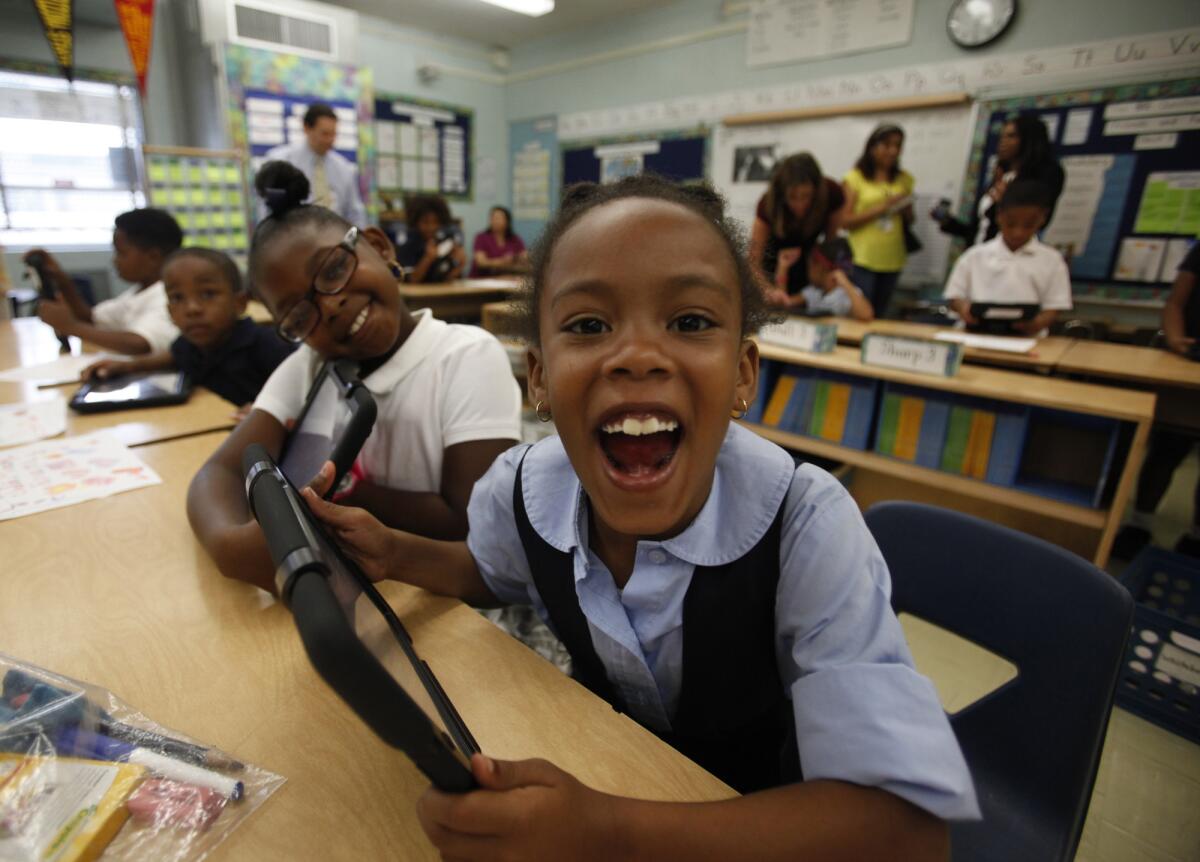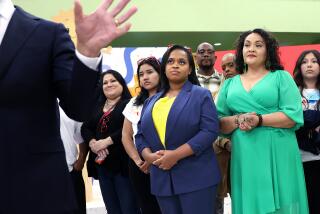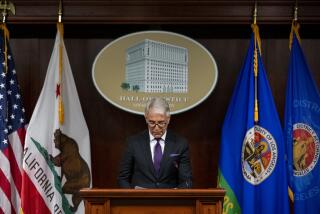Deasy canceled iPad program after records showed ties to vendors

Los Angeles schools Supt. John Deasy canceled the $1-billion program to provide all students with an iPad after public records showed he and his top deputy had developed a relationship with the vendors two years prior to the bidding.
Recently released emails showed that Deasy and his then-deputy, Jaime Aquino, began meeting and corresponding with top Apple and Pearson executives and discussing the effort to give all students, teachers and administrators an iPad.
The superintendent sent the Board of Education a letter Monday informing members of his decision. The superintendent was coming under mounting criticism over the emails and an internal report obtained by The Times last week that showed a flawed process and a lack of transparency, among other things.
Deasy and his chief deputy developed a special relationship with executives from the companies that won a key technology contract, records show, raising new questions about the bidding process in a $1-billion effort to provide a computer to every student in the nationâs second-largest school system.
This collaboration between top L.A. Unified officials and those from tech giant Apple Inc. and Pearson, detailed in public records, underscores findings from an internal school district report, which warned that officialsâ actions could have created an impression of unfairness in the bidding.
It appears that the officials began discussing the school systemâs effort to supply students computers equipped with online curriculum at least two years before the contract was approved.
In one email, from May 24, 2012, then-Deputy Supt. Jaime Aquino seems to strategize with higher-ups from Pearson, an international education-services company, on how to ensure that it got the job.
âI believe we would have to make sure that your bid is the lowest one,â wrote Aquino, who was an executive with a Pearson affiliate before joining L.A. Unified.
Deasy was one of the last to participate in that email exchange and made his comments after Aquinoâs, which covered several topics.
âUnderstand your points and we need to work together on this quickly,â Deasy wrote. âI want to not loose [sic] an amazing opportunity and fully recognize our current limits.â
On Sunday, Deasy said that the conversations were only about a âpilot program we did at several schools months before we decided to do a large-scale implementation. We did work closely on this pilot.â
Deasy said he recalled that Aquino also offered another major vendor, Amplify Education Inc., a similar opportunity.
âNothing was done in any inappropriate way whatsoever,â the superintendent said.
In June 2013, the Board of Education approved a deal with the Apple/Pearson team after senior staff assured members that its proposal was both the least expensive and highest in quality. Pearson provided curriculum; Apple was to supply iPads.
Last yearâs iPad rollout at 47 schools was marred by several problems. Students at three campuses, for example, deleted security filters so they could browse the Internet â prompting officials to prohibit the use of the devices outside school. At times, officials also provided conflicting or incorrect answers about the project to a technology committee headed by school board member Monica Ratliff.
More to Read
Sign up for Essential California
The most important California stories and recommendations in your inbox every morning.
You may occasionally receive promotional content from the Los Angeles Times.











